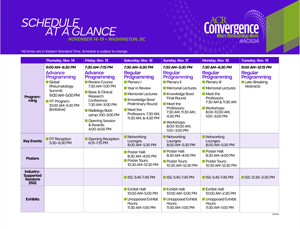Back
Abstract Session
Vasculitis
Session: Abstracts: Vasculitis – ANCA-Associated I (0823–0828)
0823: A Randomized, Double-Blind, Placebo-Controlled Trial of Abatacept for the Treatment of Relapsing, Non-Severe, Granulomatosis with Polyangiitis
Saturday, November 16, 2024
1:00 PM – 1:15 PM Eastern Time
Location: Room 150AB
.png)
Carol Langford, MD, MHS
Cleveland Clinic
Moreland Hills, Ohio, United States
Presenting Author(s)
Carol Langford1, Nader Khalidi2, Jason Springer3, Marcia Friedman4, Bernhard Hellmich5, Christian Pagnoux6, Natasha Dehghan7, Ora Singer8, Curry Koening9, Yih Chang Lin10, Paul Monach11, Larry Moreland12, Aurore Fifi-Mah13, Oliver Flossmann14, Lindsy Forbess15, Peter Lanyon16, Eamonn Molloy17, Ulrich Specks18, Robert Spiera19, Elaine Yacyshyn20, Carol McAlear21, Cristina Burroughs10, Rachel Jones22, Rennie Rhee21, Rula A. Hajj-Ali23, Kenneth Warrington18, David Cuthbertson10, Jeffrey Krischer10, David Jayne22 and Peter Merkel21, and the Vasculitis Clinical Research Consortium and the European Vasculitis Society, 1Cleveland Clinic, Moreland Hills, OH, 2McMaster University, Hamilton, ON, Canada, 3Vanderbilt University Medical Center, Franklin, TN, 4Oregon Health and Science University, Portland, OR, 5Medius Kliniken, Kirchheim unter Teck, Germany, 6Mount Sinai Hospital, Toronto, ON, Canada, 7University of British Columbia - Vancouver, Vancouver, BC, Canada, 8University of Michigan, Huntington Woods, MI, 9University of Texas Dell Medical School, Austin, TX, 10University of South Florida, Tampa, FL, 11VA Boston Healthcare System, Boston, MA, 12University of Colorado, Denver, CO, 13University of Calgary, Calgary, AB, Canada, 14Royal Berkshire Hospital, Reading, United Kingdom, 15Cedars-Sinai Medical Center, Los Angeles, CA, 16University of Nottingham, Nottingham, United Kingdom, 17St Vincent's University Hospital, Dublin, Ireland, 18Mayo Clinic, Rochester, MN, 19Scleroderma, Vasculitis, and Myositis Center, Hospital for Special Surgery, Weill Cornell Medical College, New York, NY, 20University of Alberta, Edmonton, AB, Canada, 21University of Pennsylvania, Philadelphia, PA, 22University of Cambridge, Cambridge, United Kingdom, 23Cleveland Clinic, Cleveland, OH
Background/Purpose: Granulomatosis with polyangiitis (GPA) is a small-vessel vasculitis associated with frequent relapses. Following encouraging results from an open-label study, a randomized, double-blind, placebo-controlled trial was conducted at 22 sites to examine the efficacy and safety of abatacept combined with glucocorticoids for the treatment of relapsing, non-severe GPA.
Methods: Patients with relapsing, non-severe GPA were randomized to abatacept 125 mg SC once a week or placebo both combined with prednisone 30 mg/day (or equivalent) tapered and discontinued at week 12. Those already receiving methotrexate, azathioprine, mycophenolate, or leflunomide at enrollment continued this medication at a stable dose. Patients achieving remission remained on their randomized assignment until relapse, early termination, or the common close date that was 12 months after enrollment of the last patient. The primary endpoint was the rate of treatment failure, defined as a relapse, disease worsening, or failure to achieve BVAS/WG = 0 or 1. The study was designed to achieve 80% power at a 0.05 one-sided significance level to detect a 40% reduction in the expected failure rate for the abatacept arm as compared to the placebo arm.
Results: 65 eligible patients were randomized, 34 received abatacept and 31 received placebo. There was no difference in the baseline demographic and disease characteristics between arms (Table 1). The study population consisted of patients with longstanding, relapsing disease who had a history of receiving a range of immunosuppressive agents in the past, including 28 (43%) patients previously treated with rituximab.
During the trial, relapse or disease worsening occurred in 21 (62%) patients randomized to abatacept and 21 (68%) patients randomized to placebo. These outcomes included episodes of severe disease in 3 patients who received abatacept and 5 who received placebo. For the primary endpoint, no statistical difference in the treatment failure rate was found between those who received abatacept compared to placebo (P = 0.255), Figure 1. Treatment with abatacept did not demonstrate any statistical difference from placebo in key secondary endpoints, including time to full remission (BVAS/WG=0), duration of glucocorticoid-free remission, relapse severity, prevention of damage, or patient-reported quality of life outcomes. 69 adverse events occurred in 36 patients, including 27 serious adverse events in 19 patients. There was no difference in the frequency or severity of adverse events between treatment arms, including the rate of infection.
Conclusion: In patients with relapsing, non-severe GPA the addition of abatacept to glucocorticoids did not reduce the risk of relapse, severe worsening, or failure to achieve remission. Treatment with abatacept was not associated with increased toxicity beyond glucocorticoids alone. Patients with relapsing, non-severe GPA represent a unique population with challenging unmet needs to better control disease activity. Further research is needed to understand pathophysiologic mechanisms and investigate novel treatment approaches for this subset of patients with GPA.
.jpg)

.jpg)

C. Langford: AbbVie/Abbott, 12, Non-paid consultant, AstraZeneca, 5, 12, Non-paid consultant, Bristol-Myers Squibb(BMS), 5, 12, Non-paid consultant, GlaxoSmithKlein(GSK), 5; N. Khalidi: AbbVie/Abbott, 5, Bristol-Myers Squibb(BMS), 5, GlaxoSmithKlein(GSK), 6, Otsuka, 1, Roche, 1; J. Springer: Neovii, 2, NS Pharma, 1; M. Friedman: Alpine immune sciences, 3, Vertex pharmaceuticals, 3; B. Hellmich: AbbVie/Abbott, 1, 6, AstraZeneca, 1, 6, Boehringer-Ingelheim, 1, Galapagos, 6, GlaxoSmithKlein(GSK), 1, 6, Hansa, 1, InflaRx, 1, Janssen, 1, Merck/MSD, 6, Novartis, 1, 6, Pfizer, 6, Vifor, 1, 6; C. Pagnoux: AstraZeneca, 2, 6, CSL Vifor, 2, GSK, 2, 6, Otsuka, 2, 6; N. Dehghan: None; O. Singer: None; C. Koening: Amgen, 6; Y. Lin: Amgen, 6; P. Monach: HI-Bio, 2; L. Moreland: None; A. Fifi-Mah: AbbVie/Abbott, 1, Fresenius kabi, 1, novartis, 1, otsuka, 1, Pfizer, 5, Sobi, 1; O. Flossmann: CSL/Vifor, 1, 6; L. Forbess: Novartis, 5; P. Lanyon: CSL Vifor, 5, 6; E. Molloy: AbbVie/Abbott, 2, 5, Vifor Pharma, 1; U. Specks: Amgen, 2, 5, Argenx, 2, AstraZeneca, 1, 2, 5, Boehringer-Ingelheim, 1, 2, Bristol-Myers Squibb(BMS), 5, CSL Vifor, 1, Genentech, 5, GlaxoSmithKline(GSK), 5, Northstar Medical Radioisotopes, 5, Novartis, 5, NS Pharma, 5; R. Spiera: AbbVie, 2, 5, Amgen, 2, 5, AstraZeneca, 2, 5, 6, Boehringer Ingelheim, 5, Bristol Myers Squibb, 5, ChemoCentryx, 2, 5, Corbus, 5, Cytori, 2, 5, Galderma, 2, GSK, 2, 5, Kadmon, 5, Novartis, 2, 5, Roche-Genentech, 2, 5, Sanofi, 2; E. Yacyshyn: Otsuka Canada, 6, Sobi, 6; C. McAlear: None; C. Burroughs: None; R. Jones: CSL Vifor, 1, 5, 6, GlaxoSmithKline, 5, Roche, 5, 6; R. Rhee: None; R. Hajj-Ali: Amgen, 1, 2, GSK, 1, Up To Date, 9; K. Warrington: Amgen, 2, Bristol-Myers Squibb(BMS), 5, Eli Lilly, 5, sanofi, 2; D. Cuthbertson: None; J. Krischer: None; D. Jayne: Amgen, 2, 6, AstraZeneca, 2, 6, Aurinia, 4, Boehringer Ingelheim, 2, 6, Bristol-Myers Squibb(BMS), 2, 6, ChemoCentryx, 2, 6, Chinook, 1, CSL Vifor, 2, GSK, 1, 2, 6, Novartis, 2, 6, Roche, 2, 6, Takeda, 1, 2, 6, Vifor Pharma, 2, 6; P. Merkel: AbbVie/Abbott, 2, 5, Amgen, 2, 5, argenx, 2, AstraZeneca, 2, 5, Boehringer Ingelheim, 3, 5, Bristol Myers Squibb, 2, 5, Cabaletta, 2, ChemoCentryx, 2, 5, CSL Behring, 2, Dynacure, 2, Eicos, 5, Electra, 5, EMDSerano, 2, Forbius, 2, 5, Genentech/Roche, 2, 5, Genzyme/Sanofi, 2, 5, GSK, 2, 5, HiBio, 2, Immagene, 2, InflaRx, 2, 5, Jannsen, 2, Kiniksa, 2, Kyverna, 2, Magenta, 2, MiroBio, 2, Neutrolis, 2, Novartis, 2, NS Pharma, 2, Pfizer, 2, Q32, 2, 11, Regeneron, 2, Sanofi, 5, Sparrow, 2, 11, Takeda, 2, 5, Talaris, 2, UpToDate, 9, Visterra, 2.
Background/Purpose: Granulomatosis with polyangiitis (GPA) is a small-vessel vasculitis associated with frequent relapses. Following encouraging results from an open-label study, a randomized, double-blind, placebo-controlled trial was conducted at 22 sites to examine the efficacy and safety of abatacept combined with glucocorticoids for the treatment of relapsing, non-severe GPA.
Methods: Patients with relapsing, non-severe GPA were randomized to abatacept 125 mg SC once a week or placebo both combined with prednisone 30 mg/day (or equivalent) tapered and discontinued at week 12. Those already receiving methotrexate, azathioprine, mycophenolate, or leflunomide at enrollment continued this medication at a stable dose. Patients achieving remission remained on their randomized assignment until relapse, early termination, or the common close date that was 12 months after enrollment of the last patient. The primary endpoint was the rate of treatment failure, defined as a relapse, disease worsening, or failure to achieve BVAS/WG = 0 or 1. The study was designed to achieve 80% power at a 0.05 one-sided significance level to detect a 40% reduction in the expected failure rate for the abatacept arm as compared to the placebo arm.
Results: 65 eligible patients were randomized, 34 received abatacept and 31 received placebo. There was no difference in the baseline demographic and disease characteristics between arms (Table 1). The study population consisted of patients with longstanding, relapsing disease who had a history of receiving a range of immunosuppressive agents in the past, including 28 (43%) patients previously treated with rituximab.
During the trial, relapse or disease worsening occurred in 21 (62%) patients randomized to abatacept and 21 (68%) patients randomized to placebo. These outcomes included episodes of severe disease in 3 patients who received abatacept and 5 who received placebo. For the primary endpoint, no statistical difference in the treatment failure rate was found between those who received abatacept compared to placebo (P = 0.255), Figure 1. Treatment with abatacept did not demonstrate any statistical difference from placebo in key secondary endpoints, including time to full remission (BVAS/WG=0), duration of glucocorticoid-free remission, relapse severity, prevention of damage, or patient-reported quality of life outcomes. 69 adverse events occurred in 36 patients, including 27 serious adverse events in 19 patients. There was no difference in the frequency or severity of adverse events between treatment arms, including the rate of infection.
Conclusion: In patients with relapsing, non-severe GPA the addition of abatacept to glucocorticoids did not reduce the risk of relapse, severe worsening, or failure to achieve remission. Treatment with abatacept was not associated with increased toxicity beyond glucocorticoids alone. Patients with relapsing, non-severe GPA represent a unique population with challenging unmet needs to better control disease activity. Further research is needed to understand pathophysiologic mechanisms and investigate novel treatment approaches for this subset of patients with GPA.
.jpg)

Figure 1. Rate of treatment failure (relapse, disease worsening, or failure to achieve BVAS/WG = 0 or 1) comparing treatment with abatacept to placebo in patients with relapsing, non-severe, granulomatosis with polyangiitis.
.jpg)

Figure 1. Rate of treatment failure (relapse, disease worsening, or failure to achieve BVAS/WG = 0 or 1) comparing treatment with abatacept to placebo in patients with relapsing, non-severe, granulomatosis with polyangiitis.
C. Langford: AbbVie/Abbott, 12, Non-paid consultant, AstraZeneca, 5, 12, Non-paid consultant, Bristol-Myers Squibb(BMS), 5, 12, Non-paid consultant, GlaxoSmithKlein(GSK), 5; N. Khalidi: AbbVie/Abbott, 5, Bristol-Myers Squibb(BMS), 5, GlaxoSmithKlein(GSK), 6, Otsuka, 1, Roche, 1; J. Springer: Neovii, 2, NS Pharma, 1; M. Friedman: Alpine immune sciences, 3, Vertex pharmaceuticals, 3; B. Hellmich: AbbVie/Abbott, 1, 6, AstraZeneca, 1, 6, Boehringer-Ingelheim, 1, Galapagos, 6, GlaxoSmithKlein(GSK), 1, 6, Hansa, 1, InflaRx, 1, Janssen, 1, Merck/MSD, 6, Novartis, 1, 6, Pfizer, 6, Vifor, 1, 6; C. Pagnoux: AstraZeneca, 2, 6, CSL Vifor, 2, GSK, 2, 6, Otsuka, 2, 6; N. Dehghan: None; O. Singer: None; C. Koening: Amgen, 6; Y. Lin: Amgen, 6; P. Monach: HI-Bio, 2; L. Moreland: None; A. Fifi-Mah: AbbVie/Abbott, 1, Fresenius kabi, 1, novartis, 1, otsuka, 1, Pfizer, 5, Sobi, 1; O. Flossmann: CSL/Vifor, 1, 6; L. Forbess: Novartis, 5; P. Lanyon: CSL Vifor, 5, 6; E. Molloy: AbbVie/Abbott, 2, 5, Vifor Pharma, 1; U. Specks: Amgen, 2, 5, Argenx, 2, AstraZeneca, 1, 2, 5, Boehringer-Ingelheim, 1, 2, Bristol-Myers Squibb(BMS), 5, CSL Vifor, 1, Genentech, 5, GlaxoSmithKline(GSK), 5, Northstar Medical Radioisotopes, 5, Novartis, 5, NS Pharma, 5; R. Spiera: AbbVie, 2, 5, Amgen, 2, 5, AstraZeneca, 2, 5, 6, Boehringer Ingelheim, 5, Bristol Myers Squibb, 5, ChemoCentryx, 2, 5, Corbus, 5, Cytori, 2, 5, Galderma, 2, GSK, 2, 5, Kadmon, 5, Novartis, 2, 5, Roche-Genentech, 2, 5, Sanofi, 2; E. Yacyshyn: Otsuka Canada, 6, Sobi, 6; C. McAlear: None; C. Burroughs: None; R. Jones: CSL Vifor, 1, 5, 6, GlaxoSmithKline, 5, Roche, 5, 6; R. Rhee: None; R. Hajj-Ali: Amgen, 1, 2, GSK, 1, Up To Date, 9; K. Warrington: Amgen, 2, Bristol-Myers Squibb(BMS), 5, Eli Lilly, 5, sanofi, 2; D. Cuthbertson: None; J. Krischer: None; D. Jayne: Amgen, 2, 6, AstraZeneca, 2, 6, Aurinia, 4, Boehringer Ingelheim, 2, 6, Bristol-Myers Squibb(BMS), 2, 6, ChemoCentryx, 2, 6, Chinook, 1, CSL Vifor, 2, GSK, 1, 2, 6, Novartis, 2, 6, Roche, 2, 6, Takeda, 1, 2, 6, Vifor Pharma, 2, 6; P. Merkel: AbbVie/Abbott, 2, 5, Amgen, 2, 5, argenx, 2, AstraZeneca, 2, 5, Boehringer Ingelheim, 3, 5, Bristol Myers Squibb, 2, 5, Cabaletta, 2, ChemoCentryx, 2, 5, CSL Behring, 2, Dynacure, 2, Eicos, 5, Electra, 5, EMDSerano, 2, Forbius, 2, 5, Genentech/Roche, 2, 5, Genzyme/Sanofi, 2, 5, GSK, 2, 5, HiBio, 2, Immagene, 2, InflaRx, 2, 5, Jannsen, 2, Kiniksa, 2, Kyverna, 2, Magenta, 2, MiroBio, 2, Neutrolis, 2, Novartis, 2, NS Pharma, 2, Pfizer, 2, Q32, 2, 11, Regeneron, 2, Sanofi, 5, Sparrow, 2, 11, Takeda, 2, 5, Talaris, 2, UpToDate, 9, Visterra, 2.




